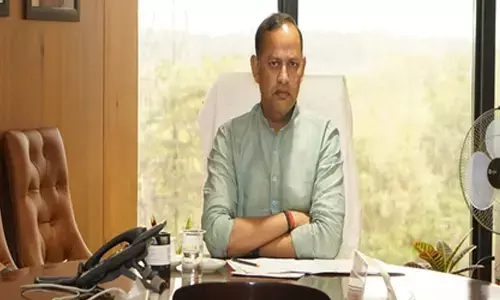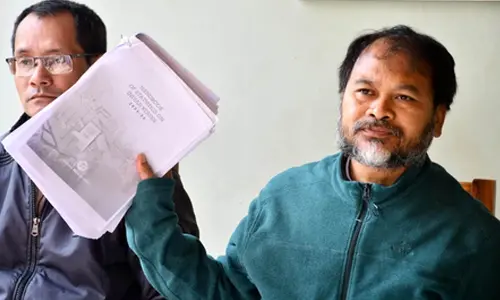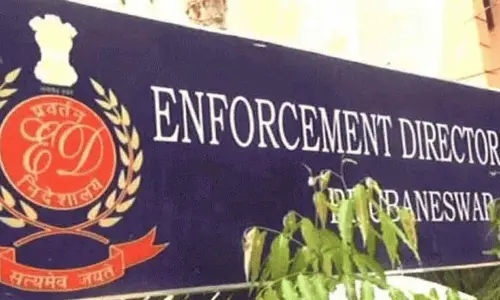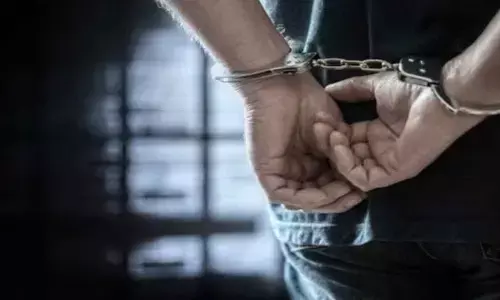Premier administrative training center of TS
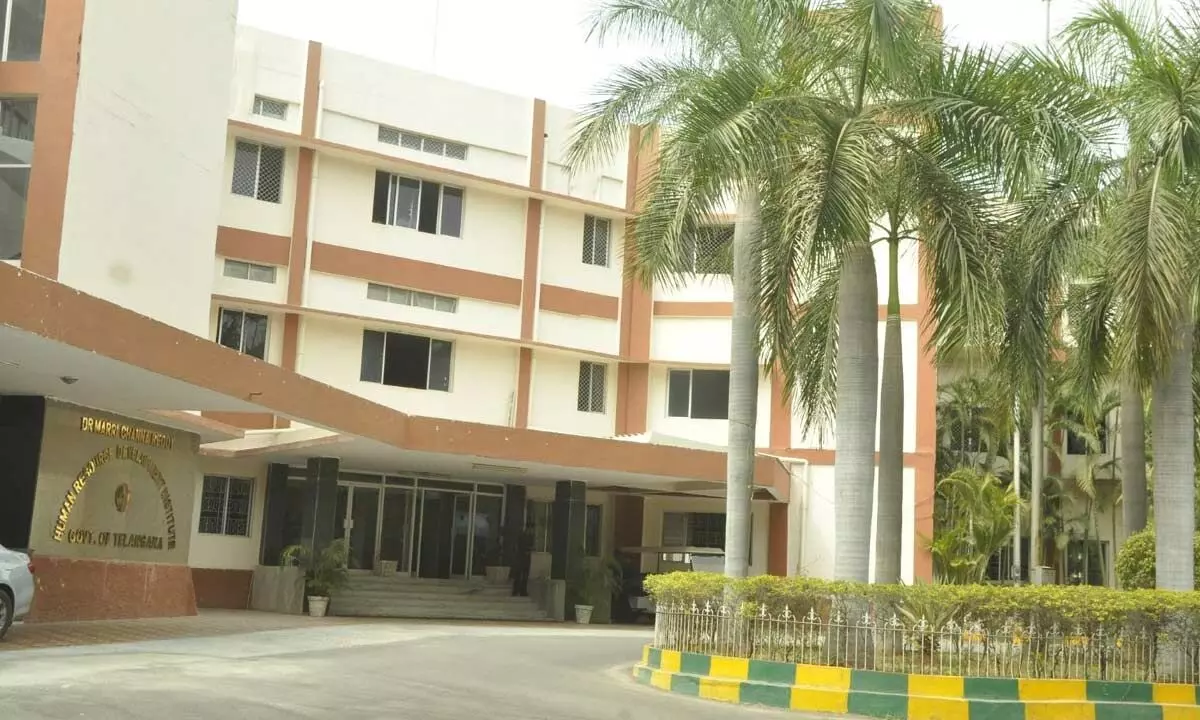
Two months ago, when Telangana CM K Chandrashekhar Rao mentioned that Training to political leaders in ‘Effective Leadership,’ would be imparted, I recollected, down the memory lane, my Nine Years Spell in the Premier Administrative Training Center of Government of Telangana, the Dr MCR Human Resource Development Institute (Dr MCR HRD I), as Faculty, Senior Faculty and Additional Director.
Two months ago, when Telangana CM K Chandrashekhar Rao mentioned that Training to political leaders in ‘Effective Leadership,’ would be imparted, I recollected, down the memory lane, my Nine Years Spell in the Premier Administrative Training Center of Government of Telangana, the Dr MCR Human Resource Development Institute (Dr MCR HRD I), as Faculty, Senior Faculty and Additional Director.
Following recommendation of VT Krishnamachari, to facilitate training for all civil and technical services and suggestion by Government of India in 1962, the Institute of Administration (IOA) was set-up in erstwhile AP in March 1976. This was renamed as Dr MCR HRDI later. V Narayana Rao was the first Director General. An eminent administrator and illustrious person, PVRK Prasad’s everlasting contribution as Director General (DG) for over 7 years, triggered transformation of the Institute, that has come to stay as a widely accepted and internationally acclaimed center.
When PVRK took charge in 1996, the institute confined to organizing traditional, rule-based, classroom-oriented and monotonous training programmes with no precise aim or objective. Additional DG Urmila Subba Rao, from whom PVRK took charge, was responsible for capacity and capability building in the Institute and who in fact, initiated process of building the institute. I still remember meeting the then Chief Minister Chandrababu Naidu with her several times, who evinced keen interest in developing the Institute. For the professional aspects of training, the entire credit goes to MP (Mahavir Prasad) Sethy, whose contribution has no parallel.
Following guidelines of National Training Policy (NTP), ‘State Training Initiative’ (STI) drafted by Urmila Subbarao was launched with the concept of ‘Training for All’ (TFA). Institute’s infrastructural facilities by adding two more floors to the existing building, well-furnished training rooms, auditoriums, Conference and Mini Conference Halls, Board Room, indoor and outdoor sports facilities including swimming pool, gymnasium, and hostel blocks, were brought to the ‘State of Art’ level. HRD’s sprawling 33-acre campus in Jubilee Hills blossoms with a lush green area.
A separate complex to accommodate, ‘Centre for Good Governance’ (CGG) was set up in the Institute campus, which too was headed by PVRK initially as DG. Tony Blair the then UK Prime Minister came all the way from England to inaugurate it.
Joining the Institute on September 5, 1995 when Dr V Chandramauli was DG, I worked for 9 years, till August 31, 2004 and was a part and parcel in its phased development and total transformation, into a world-class HRD and training center. The day I joined hardly people knew institute’s exact location since it was little familiar. In the initial days, the faculty often had to wait for trainee participants anxiously and desperately at the entrance for their training programmes, who were always same for every program. Budget allocation was negligible. But, as the days passed, the Institute was credited with, being the earliest one to implement NTP Guidelines in letter and spirit adopting to the needs of state. Infrastructural facilities were multiplied. The then CM Chandrababu Naidu and his cabinet colleagues made frequent visits to the institute.
Besides PVRK and Urmila Subbarao, it was a privilege for me to work with distinguished administrators of the stature of V K Srinivasan, P P Williams, P V Rao, Raghottam Rao, A K Parida, A Chengappa, R Seetharama Rao, MP Sethy, Ranjana Shiva Shankar, Usha Ashok Kumar, Rani Kumudini etc., as my senior colleagues and DGs. Hierarchy was seldom observed. M Narayana Rao, Dr P Dayachari, Pankaj Dwivedi, Dr Virendra Jauhari, Ajoyendra Pyal, Md Shafiquz Zaman, Dr Prashanta Mahapatra, SK Sinha, Lakshmi Parthasarathi, Vinod K Agrawal, BP Acharya, Harpreet Singh, Benhur Mahesh Dutt Ekka, and Dr Shashank Goel, whose contribution was equally significant, headed the institute subsequently.
By attending several trainer-training programmes, generally organised by ‘Institute of Secretariat Training and Management’ (ISTM) of the Government of India (GOI), ‘Department of Personnel and Training’ (DOPT), in New Delhi, I acquired professional qualifications necessary for training delivery effectively. First among them, ‘Systematic Approach to Training’ (SAT), enabled me to impress Urmila Subbarao, then in-charge DG, to initiate ‘Training Needs Analysis’ (TNA) that ultimately led to OMR formats based massive TNA of all the 11 lakh government employees, the first of its kind in the Country!
‘Management of Training’ (MOT) Course, ‘Director Trainer Skills’ (DTS), ‘Design of Training’ (DOT), ‘Trainer Training Course in DTS’ to become ‘Recognized User’ to run DTS Course etc. also I attended, in addition to many more such programs. I was selected to attend a three week ‘Trainer Training Program’ in Thames valley University (Slough, UK) based on the Training Module ‘Reform Initiatives in Administration’ designed, developed, and piloted by me.
Organizing a diversity of training programmes as training coordinator and faculty, it was a joint learning on administration. These included training 9 batches of IAS Probationers (Assistant Collectors under training) during their Institute Attachment and also Group 1 and 2 Officers Foundation Training. Almost all participants of these programmes have been in constant touch with me exchanging pleasantries despite working in senior positions. When the first ever training programme for the entire cabinet including the then CM for three days in 1999 was held, for which experts in various fields were invited as guest faculty, I was coordinating it.
At a time when training was an identified priority area in the government scheme of things, to seek commitment of HoDs, who included senior IAS Officers, a unique ‘Orientation to Management of Training’ (OMOT) Module was designed and developed by me in consultation with MP Sethy during later 90s. About 150 senior and junior IAS officers, as well as HODs of erstwhile AP attended these series of three-day duration workshops. OMOT was later adopted by nationwide training institutes. governing for results, land reforms, tribal welfare, forest development, human rights, disaster management, media and public relations, communication and effective leadership skills, role of NGOs, citizen charters, child labour, right to information etc., were other programmes designed, developed, and implemented by me.
At a time when MCR HRD launched STI and was in search of high-profile Master Trainer, on my suggestion, the then DG PVRK Prasad, on obtaining MP Sethy’s consent, proceeded with the process of bringing him on deputation to MCR HRDI from his parent ‘Indian Naval Stores Management Service’ where he was in a senior position. Sethy even now is THE TOP RANKER MASTER TRAINER who had undergone training in Thames Valley and responsible for designing many Trainer Training Programs in the country including drafting ‘National Training Policy.’
At one stage, PVRK requested intervention of the then CM to speak to Defense Minister George Fernandez to expedite the process. Sethy joined the Institute in a very Senior Position and soon, Institute’s Capacity and Capability function touched sky high. Even after his term was over and even after his retirement, on my suggestion, (Now 70+ years) Sethy accepted a visiting assignment during BP Acharya’s period as DG and still offering his services on request.
The duo BP Acharya (Mainly) and MP Sethy were responsible for starting or conducting prestigious programmes that included, Orientation Training to Government Employees including HoDs through Centre for Telangana Studies; LBSNAA sponsored Foundation Courses (FC) for All India Services and Central Civil Services; Special FC for backlog AIS officers; FC for IES and ISS officers; First Ever FC for Military Engineering Service; FC for ASOs of Central Secretariat; Training on Soft Skills to over a lakh State’s field staff under DOPT E-Learning Program etc.
With a lot of admiration for the premier body, Dr MCR HRD Institute, I sincerely feel that training should continue to be identified priority area in government scheme of things.
(The writer is CPRO to CM Telangana and former Additional Director
Dr MCR HRD IT)










